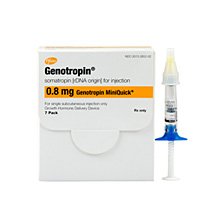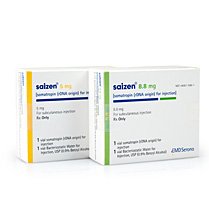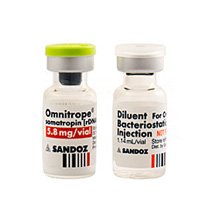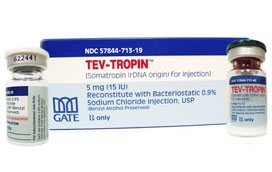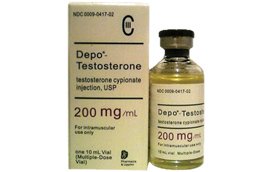Progesterone Therapy for Anxiety

Many people do not realize that the body produces its own natural remedy for anxiety – progesterone.
This vital hormone is often associated with pregnancy, but it does so much more for men and women that it should never be ignored.
Doctors use progesterone therapy for anxiety with superior results. Not only does it help calm the feelings of anxiety, but it also induces sound sleep at night – making it a valuable tool to fight the effects of the stress hormone cortisol.
People who seek treatment for depression and receive anti-depressants that do not work should always be checked for hormone deficiency. If the problem lies with low levels of progesterone, then the best way to reverse these feelings is with prescription progesterone therapy.
The more we learn about progesterone therapy and anxiety, the easier it is to see why this treatment works so well.
Progesterone impacts the brain’s gamma amino butyric (GABA) receptors. This is similar to how alcohol, anti-anxiety drugs, and sleeping pills provide a calming effect. GABA is the brain’s primary inhibitory transmitter. One way to tell if you have a progesterone deficiency is if you find yourself frequently wide awake between 2 and 4 am.
Because progesterone decline can begin as early as one’s late twenties, it is never too soon to seek out the help of progesterone therapy for anxiety if this hormone deficiency is the problem.
Progesterone Decline Can Begin as Early as a Person’s Late Twenties!
Anxiety Symptoms that Can Benefit from Progesterone
Anxiety can manifest itself differently from one person to the next. Where one individual may find that panic attacks, heart palpitations, and irrational fears are the primary concern, someone else may experience nervousness, headaches, and frequent bouts of crying. Both can benefit from progesterone therapy and anxiety reversal by correcting a hormone imbalance.
The 9 most common symptoms of progesterone deficiency include:
- Anxiety
- Fibrocystic breasts
- Infertility
- Irregular menstrual cycles
- Loss of bone – osteopenia or osteoporosis
- Low libido
- Low testosterone levels – estrogen dominance
- PMS
- Waking at night
Item number 7 on the list above – low testosterone levels and estrogen dominance – is important to understand. Progesterone is not only the source hormone for the production of testosterone, but it is also the hormone that helps keep estrogen levels in check. When progesterone and testosterone decline, estrogen can move in as the primary hormone, causing weight gain, increasing the risks of breast and prostate cancers, and further lowering testosterone levels.
You may benefit from progesterone therapy for anxiety if you experience any of the mental or physical manifestations of anxiety in the charts below:
| Mental Symptoms of Anxiety | ||
| Agitation | Apprehension | Crying |
| Depression | Emotional upset | Irrational fears |
| Irritable | Lack of self-esteem/confidence | Nervousness |
| Panic attacks | Low stress tolerance | Difficult to relax |
| Social fears or isolation | Tension | Overwhelmed feelings |
| Physical Symptoms of Anxiety | ||
| Aggressive behavior | Breathing difficulties | Butterflies in the stomach |
| Clammy or cold skin or hands | Cravings for sweets | Dizziness |
| Fatigue | Headaches | Heart palpitations |
| Hot flashes | Itchy skin | Jittery |
| Lump in throat | Misty vision | Muscle weakness |
| Nausea | Rapid heart beat | Shaking/trembling |
| Shortness of breath | Stomach in knots | Sweating |
| Tightness in chest | Tremors | |
How Progesterone Helps Anxiety
Progesterone’s anti-anxiety effects can occur within three to ten minutes following administration. The response is similar to the use of benzodiazepine medications but without the addictive risks associated with those drugs.
In times of anxiety, the body releases higher levels of the stress hormones cortisol, adrenaline, and noradrenaline. Other crucial hormones and neurotransmitters (such as GABA) and serotonin (the “happy” neurotransmitter) are suppressed. Adrenaline sends glycogen (glucose) that has been stored in the cells pouring into the bloodstream. If this glucose is not used up by the fight or flight response, a surge of insulin comes to prevent hyperglycemia. The glucose converts into fat causing weight gain and increased triglyceride and cholesterol levels. Food consumed at this time can stop the conversion.
Because progesterone is a neurosteroid, the use of progesterone therapy for anxiety affects nerve functioning, mood, and behavior since it is synthesized in the central nervous system, activating the GABA receptor sites.
Another benefit is that progesterone helps to stabilize blood glucose levels that can also trigger anxiety attack symptoms.
Progesterone therapy for anxiety also helps to increase serotonin and dopamine levels in the brain.
To learn more about whether or not progesterone therapy is right for you, contact the hormone specialists at Greenberg Health for a free consultation.


















 Norditropin
Norditropin